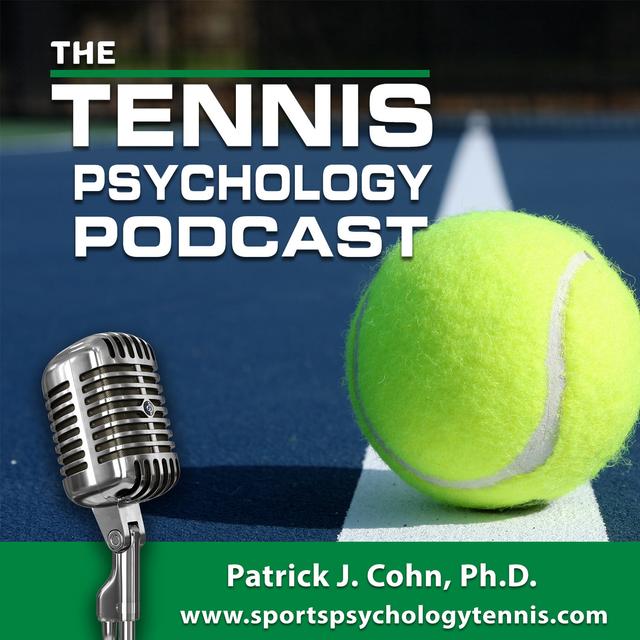¶ Intro / Opening
You're listening to the Tennis Psychology Podcast with mental game of tennis expert, Dr. Patrick Cohn. Do you want to improve your mindset for tennis? Then join us on the Tennis Psychology Podcast. How do you refocus when you're distracted during your between-point routine in tennis? Hi, I'm Dr. Patrick Cohen, a mental performance coach at Peaksports.com. And in this podcast, I'm going to talk about...
how you can refocus when you get distracted between points. You're listening to the Tennis Psychology Podcast. Want to quickly improve your mental game for tennis? Visit www.sportspsychologytennis.com today and download a free e-book titled Six Unforced Mental Errors Tennis Players Make Between Points.
¶ Identify and Understand Distractions
So a question I get quite often is, what happens if I get distracted between points and I can't get my focus back? Well, that requires you to have this skill of refocusing.
¶ Apply the Three R's to Refocus
And I teach the three R's for refocusing to my athletes. It's basically recognize, regroup, and refocus. And we'll talk about some of those elements in a moment. So what might be distracting you? First of all, you have to understand where your focus needs to be. We've talked about the routine and the mental skills in the routine in previous videos, so I'm not going to go over that.
But you have to understand that there's certain performance cues that are going to help you execute. And then there's a whole nother set of distractions that aren't going to help you. Typical distractions would be... Bringing in the last point into the next point. In other words, dwelling. External distractions around you, like who's in the stands, maybe friends.
parents saying something, a coach saying something in the stands, people walking around the court that catches your eye. Maybe you don't like the wind. or the conditions of the court, all of those can be distractions too. We call those the external distractions. In addition, you might be thinking ahead. Oh, well, it's deuce if I don't win this game.
I'm going to drop this set. So we call that outcome thinking. Or you might be thinking about the score line, thinking too far ahead about, oh, well, I don't want to lose, you know, 6-1, 6-1 to this player I beat last time. So all of that outcome thinking doesn't help. And it often creates anxiety and worry when you're getting ahead of yourself. There's one other category of distractions. I like to call these random distractions.
Random distractions are things that just pop into your head for no reason. Typically about things in your life or if you're a student, school, maybe relationships, maybe friendships, maybe family life. Things that are important to you just come into your head between points. And that's very natural. So here's the plan. The first step is to understand your personal triggers.
What are those distractions for you typically? Do you get ahead of yourself? Do you have more random distractions? Do you dwell more on the past and get caught there? Make a list of your top triggers. Those are the things that you think about the most between points that have no relevance on executing the next point. Once you have that, you want some type of refocus statement. I call it the interrupt. First, you have the recognize that you're not focused. Second step is regroup.
That's simply, you're going to interrupt yourself and say, stop, that's not important. Stop, that's over. That's in the past. Or that's not important right now. Then the most important R is the refocus. Here's where you want to be very specific about what you refocus on. Let's refocus on planning my serve right now. Let's refocus on my ball bounce right now. Let's refocus on seeing the serve or visualizing the serve.
So I want you to be very specific with where you bring your attention to after you recognize you're distracted, you interrupt that distraction, and you get back to the present moment and what you're doing. Now it's perfectly acceptable to step off the line and restart your routine. We call that a routine restart. I would do that if you're getting close to your ball bounce, you're getting close to your ball toss.
And you need to step off and get your stuff together. The closer you are to executing the serve, the more likely you want to restart the routine. Hope that was helpful. Hope you enjoyed this series. please like the video, subscribe to the channel if you're not a subscriber, and hit that notification bell. And we'll see you in the next one. Thanks for listening. Thank you for listening to the tennis psychology podcast with Dr. Patrick Cohn.
Discover the secrets to superior tennis confidence by visiting www.sportspsychologytennis.com for practical mental game strategies to improve your tennis game.

